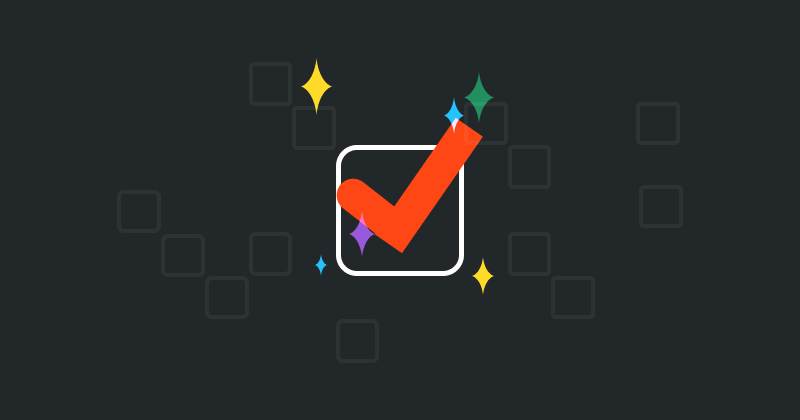
Does ChatGPT Have Legal Privilege? What Lawyers Must Understand
.png)
Think twice before treating ChatGPT like a junior associate because, unlike a human associate, communications with ChatGPT are not legally privileged.
Many lawyers across the U.S. use AI tools such as ChatGPT to assist in drafting contracts, brainstorming contract clauses, and analyzing case law. But the urgent question remains: do ChatGPT communications have legal privilege?
ChatGPT communications do not meet the criteria for legal privilege. Assuming otherwise can expose attorneys and their clients to considerable risk.
For practicing lawyers, compliance officers, and legal teams exploring the use of artificial intelligence (AI), this guide will clarify what ChatGPT does and does not offer in terms of protecting sensitive communications. Explore the legal, ethical, and practical implications of using ChatGPT in legal contexts and discover the benefits of safer alternatives.
Key Takeaways
- ChatGPT communications do not have legal privilege and cannot provide attorney-client confidentiality.
- Any information shared with ChatGPT is potentially discoverable in litigation.
- Using legal-specific AI tools can help maintain compliance, confidentiality, and efficiency.
.png)
Can ChatGPT Conversation History be Used Against You in Court?
Yes. ChatGPT saves conversation history unless the history feature is disabled. Even then, ChatGPT retains a temporary history of chats for 30 days for the purpose of abuse monitoring. This short-term retention is a major reason why regular ChatGPT is unsuitable for sensitive legal data.
Similar to email threads and Slack messages, the prompts you enter into ChatGPT reside with a third-party provider and can be accessed through legal processes. Prompts and chats are not public, but they’re not privileged either. Transcripts may be discoverable, depending on their relevance, possession/custody/control, and any applicable protective orders, as outlined in FRCP Rule 34.
When ChatGPT Becomes a Witness: Subpoenas and Discovery Risks
Modern technology companies are frequently required to turn over user data in response to subpoenas to support criminal investigations and prosecutions. ChatGPT conversations could be treated similarly, making them subject to discovery and disclosure in legal proceedings.
OpenAI CEO Sam Altman said that there’s no legal confidentiality for ChatGPT conversations, as interviewed on the podcast, This Past Weekend with Theo Von.
“Right now, if you talk to a therapist or a lawyer or a doctor about those problems, there’s legal privilege for it. There’s doctor-patient confidentiality, there’s legal confidentiality, whatever. And we haven’t figured that out yet for when you talk to ChatGPT,” Altman said.
Why ChatGPT Poses Legal Privilege and Confidentiality Risks
The use of generative AI raises concerns about confidentiality and privacy. Because courts recognize attorney-client privilege only between licensed attorneys and their clients, any disclosure to a third-party system, such as ChatGPT, falls outside that protection.
ChatGPT is widely available and designed to be accessible for all users, which underscores why it cannot function as a secure channel for confidential or privileged exchanges. Moreover, the platform is not a lawyer and cannot provide legal services. It does not create a framework for privileged communication.
Ethical Duties Under Professional Rules
Model Rule 1.6 requires lawyers to safeguard client information. Model Rule 1.1, Comment 8 mandates technological competence. Using ChatGPT without safeguards could compromise both duties, exposing lawyers to professional and ethical consequences.
The Mata v. Avianca case highlights these dangers. Two New York attorneys submitted a court filing that cited fabricated case law generated by ChatGPT. When pressed, they doubled down instead of promptly correcting the error. Judge P. Kevin Castel sanctioned both lawyers, citing bad faith, ethical lapses, and reputational harm.
ChatGPT can help accelerate the drafting and research process. However, it cannot guarantee accuracy or confidentiality. Lawyers who rely on it without proper oversight risk losing privilege protections and may face sanctions and reputational damage.
How Courts May View ChatGPT Communications
No court has recognized ChatGPT communications as privileged. Courts have, however, addressed privilege waiver in analogous contexts, such as insecure email and cloud platforms.
In United States v. Hamilton (4th Cir. 2012), emails between a defendant and his attorney on an employer’s monitored system were not privileged. By analogy, communications with ChatGPT are likely to be treated similarly, as unprotected, unless clear privilege safeguards are established.
Attorneys who anticipate this approach and adopt the appropriate policies now can stay ahead of evolving judicial expectations and regulatory developments.
How ChatGPT Handles User Data and Conversations
According to OpenAI's Privacy Policy, ChatGPT:
- Collects and stores user content (including prompts and uploads), which may be used to improve AI models unless users opt out or use Enterprise/Zero Data Retention features.
- Shares information with vendors, service providers, or government authorities when required by law, for security purposes, or to protect OpenAI’s rights.
- Retains personal data and chat history for as long as needed to provide services or comply with legal obligations; stricter protections apply to Enterprise or Zero Data Retention accounts.
In practice, ChatGPT does not provide the necessary safeguards for privileged communications, rendering it unsuitable for handling client-sensitive information. Even if a user opts out of model training, their content is still retained and can be accessed and disclosed during the retention period for safety and abuse monitoring.
Read more: Is it legal for lawyers to use ChatGPT?
Practical Implications of ChatGPT for Legal Practice
Used thoughtfully, AI can be a valuable complement to a lawyer’s expertise when deployed with proper safeguards. The following outlines typical applications of ChatGPT for law:
- Document Drafting and Review: ChatGPT can assist in generating contract clauses and summaries. However, it should be treated as a non-legal, informational tool. Every output requires attorney review.
- Legal Research and Analysis: ChatGPT can summarize cases or statutes. It cannot provide legal advice under privileged terms. Always double-check its output with verified sources.
- Client Communication: ChatGPT can refine tone or clarity. But it cannot be trusted with confidential details or client data.
- Case Strategy and Preparation: AI can support brainstorming sessions. But it is not intended to provide privileged legal services. It may generate fabricated or misleading information.
As an alternative, legal-specific AI tools such as Spellbook can help review, draft, and revise legal documents in a secure, compliant, and confidential environment.
Spellbook emphasizes compliance with major privacy standards, such as GDPR, CCPA, and PIPEDA, to safeguard client confidentiality. It integrates seamlessly with Microsoft Word to fit into existing workflows. It also offers advanced tools for contract clause generation, redlining, benchmarking to industry standards, and more, all tailored to the needs of practicing lawyers.
However, note that no AI tool inherently grants privilege.
How to Build a Secure and Ethical Framework for Your Law Firm
To responsibly integrate AI into practice, firms and legal departments must adopt clear safeguards that protect all parties, including clients. Actions to consider include:
- Develop a Mandatory Internal AI Use Policy: Define rules for confidentiality, client consent, oversight, and compliance, and avoid using tools that may not provide legal protections.
- Take the "Walled Garden" Approach: Use only secure, private AI systems instead of public platforms that do not maintain confidentiality.
- Use Legal-Specific AI Tools: Use legal AI platforms, such as Spellbook, CoCounsel, and LexisNexis, to safeguard sensitive data. Legal-specific AI tools are developed to meet the specific needs and demands of the legal sector.
The future of generative AI in the legal industry is promising. However, without clear policies, secure systems, and legal-specific tools, any use of AI creates risks of breaching confidentiality, waiving privilege, and undermining client trust.
Frequently Asked Questions
Can ChatGPT Ever be Considered Part of Privileged Communication?
No. ChatGPT cannot be considered part of privileged communication because it is not a licensed attorney, and no current legal framework grants it the status of an attorney-client privilege. Sharing sensitive information with ChatGPT forfeits confidentiality protections and exposes the information to potential discovery. No recognized doctrine makes conversations with ChatGPT privileged.
If I Disable History in ChatGPT, Does That Make It Safe for Legal Use?
No. Disabling ChatGPT history reduces risk but does not make it safe for legal use. Prompts and chats are still retained, and conversations may remain discoverable.
Has Any Court Addressed ChatGPT and the Issue of Legal Privilege Directly?
No. No court has directly ruled on ChatGPT and legal privilege. However, related cases and legal commentary suggest that communications with ChatGPT would likely fall outside the protections of the attorney-client privilege.
How is ChatGPT Enterprise Different from the Public Version in Terms of Privilege?
ChatGPT Enterprise offers enhanced privacy controls, including Zero Data Retention and stricter data handling policies. These features improve security but do not establish legal privilege or create attorney-client confidentiality.
What Types of Legal Tasks are Safe to Delegate to ChatGPT?
Safely delegate low-risk legal tasks to ChatGPT, such as brainstorming, summarizing legal topics, or enhancing document clarity. Avoid inputting client-specific information and confidential communications.
Could Using ChatGPT Expose My Firm to Ethics Violations?
Yes. Using ChatGPT may lead to breaches of ethics rules on client confidentiality, technological competence, and unauthorized practice of law. Lawyers must ensure that the use of AI aligns with their professional responsibilities.
Is There Any Legal Protection for Using ChatGPT for General Legal Information?
No. ChatGPT does not provide legal advice or offer legal privilege, even when used for general legal information purposes. Its outputs are not legally binding, remain outside the bounds of attorney-client confidentiality, and may be discoverable in litigation.
Thank you for your interest! Our team will reach out to further understand your use case.







